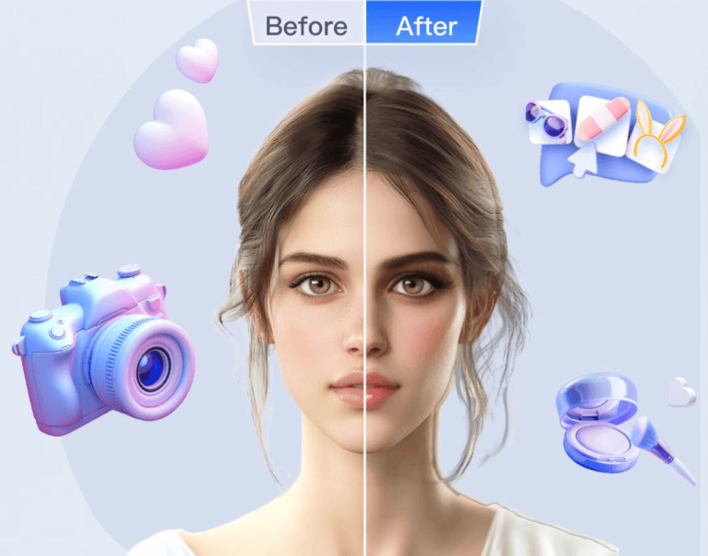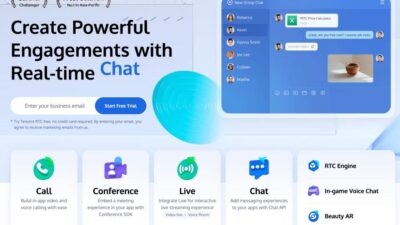Developers need tools that improve engagement, reduce time to market, and deliver smooth experiences across devices. Tencent RTC Face Filters offer all three. These filters integrate directly into live video applications and empower developers to create interactive, user-friendly features with minimal overhead. The face filters go beyond surface-level enhancements. They provide real-time beauty effects, AR stickers, and expression-based interactions that work consistently across platforms. For developers, this means better UX, higher retention, and lower development complexity.
Why Developers Choose Tencent RTC Face Filters
Tencent’s face filter system is built for flexibility, reliability, and scalability. It supports creative features while helping developers meet performance and user satisfaction goals.
Quick integration with cross-platform SDKs
Tencent provides SDKs for all major platforms—iOS, Android, Windows, macOS, Unity, and Web. Developers can integrate face filters without building everything from scratch. The documentation is clear, and the APIs are well-structured. This plug-and-play setup reduces development time. Teams can add advanced beauty filters, animated stickers, and gesture-triggered effects with just a few lines of code. It works alongside Tencent’s RTC engine, so video and filter layers sync perfectly. Cross-platform compatibility means developers don’t need to maintain separate solutions for mobile and desktop users. Consistent performance across devices helps apps scale faster and reach more users.
Real-time performance with low CPU load
Face filters often require heavy processing. Tencent solves this with optimized rendering and AI-powered face tracking that runs efficiently in real time. The filters with minimal CPU and memory usage. Developers can deliver smooth video experiences even on mid-range or older devices. The system adjusts rendering quality based on available resources to prevent crashes or slowdowns. This matters for user retention. If a face filter lags or causes the app to overheat, users leave. Tencent’s filters maintain high visual quality while keeping performance stable. That gives developers confidence in long-term usability.
Support for customization and branding
Developers can fully customize filters to match their brand, campaign, or user experience. Tencent’s SDK supports uploading custom assets, creating branded AR masks, and adjusting beauty levels based on user preferences. Teams can build seasonal content, event-based themes, or gamified effects that increase engagement. For example, a dating app might offer Valentine’s Day masks, or a learning app could reward users with animated overlays when they complete milestones. Customizable filters give developers marketing flexibility. Instead of shipping a generic set of effects, they can create unique visual identities that build user loyalty and strengthen brand presence.
How Tencent RTC Face Filters Deliver Business Value
Developers don’t just gain technical benefits. Face filters improve core product metrics—engagement, retention, and user satisfaction. These translate into stronger growth and better monetization. Apps that feel fun and interactive hold attention longer. Tencent’s filters make users more likely to turn on their cameras, stay in video sessions, and share content. Beauty filters reduce camera anxiety. Users feel more confident showing their faces, which increases participation in calls, classes, or streams. AR stickers and animated effects keep the experience lively, encouraging repeat usage. Session time often improves with face filters. Whether in a game, virtual event, or social platform, users interact more when visuals respond to their movement or expression. These micro-interactions drive stickiness and reduce churn. Building a custom face filter engine takes months. Tencent shortens this timeline with a full-featured SDK, optimized components, and reliable support. Developers don’t need to hire specialized teams or invest in deep AI research. The pre-built assets and modular design allow teams to launch fast, test quickly, and scale without rewriting code. Maintenance also becomes easier, with Tencent regularly updating the SDK for performance, device support, and security.
Conclusion
Tencent RTC Face Filters offer a full suite of benefits for developers. Fast integration, low system load, and full customization make them easy to implement and manage. They help teams build apps that look polished, feel smooth, and drive deeper engagement. These filters go beyond fun visuals. They boost performance metrics, reduce development friction, and support creative monetization strategies. For any developer building a real-time video app, Tencent’s face filters provide the tools to compete, scale, and succeed.



